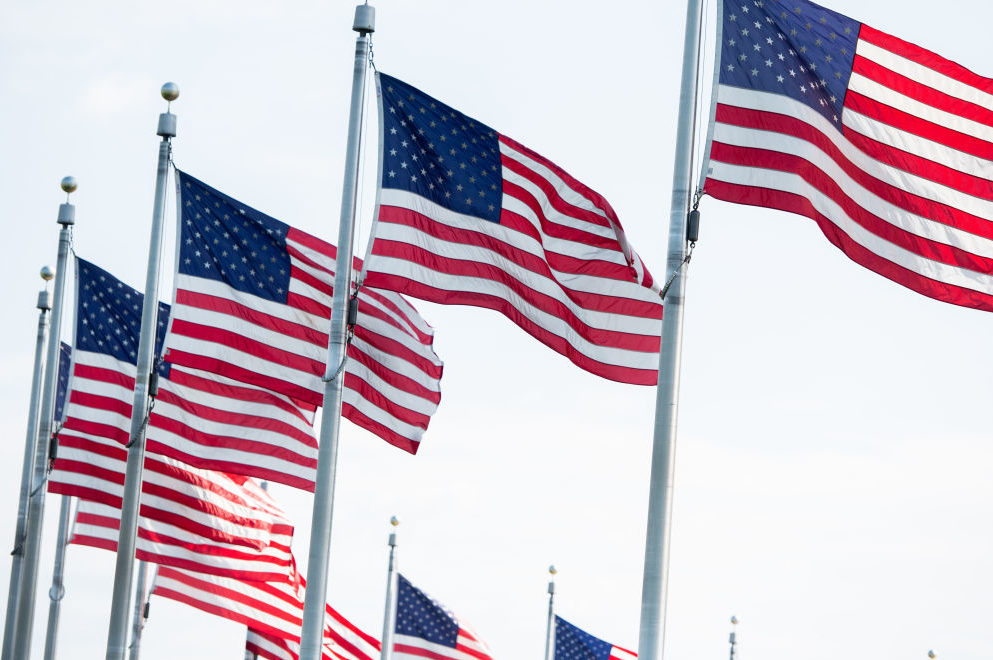I’m about to fly home to London after five years of reporting from America for the Sunday Times, first from New York, then Washington, taking in really a lot of strange and surprising places along the way. Fortunately, I got one of the last doses of the Johnson & Johnson vaccine before its suspension sparked yet another wave of national hysteria. I’m proud to be taking a little shot of all-American adenovirus back with me to the Old Country.
No foreigner can ever really claim to know America; there’s just one of you in a country of 330 million. But misapprehensions can be corrected. And of all the many misguided views I had about this country when I arrived, few have changed more than my perceptions of its media.
I used to think American media was wonderful. As an aspiring young journalist in the UK, and a liberal, I regarded the US press as the platinum standard. The long reads, the cable news razzmatazz, the weighty literary journals: it all seemed so consequential. The highlight of my week as a student was the New York Review of Books landing in my pigeonhole. It felt like my ticket to the big show. I could read Michael Tomasky and Daniel Mendelsohn as though I were a genuine Upper West Side salonnier. Whenever I went on holiday with my parents, I’d spend hours glued to CNN in my hotel room. Christiane Amanpour! Wolf Blitzer! I was transfixed by these impossibly glamorous giants of broadcast.
That was then. Now I read Tomasky, the recently appointed editor of the new-old New Republic, and chuckle at his slavish parroting of received Democratic party wisdom. I watch Amanpour compare the Trump presidency to Kristallnacht and wonder what happened to that gutsy reporter I used to gawp at. Did I change or did they?
Both, I think. Some of it is the cynicism of age: the creeping realization of just how vain and self-important most denizens of the public sphere are. There’s also the demystification that comes with proximity: like everything in life, it’s all so much less glamorous up close, when you can smell the sour coffee breath of a media scrum. But it’s also apparent that the shattering of the media’s economic foundations, the rise of narrative journalism, the attention economy, and the fundamental absurdity of our age has corroded a once great edifice.
The decline really struck me the other day while watching a segment on CNN, in which a grave young Irish chap called Donie O’Sullivan visited an event at the Trump Doral hotel in Miami, where attendees told him lots of silly things about January 6. Donie’s become a big player on the zeitgeisty misinformation beat, which in his case seems primarily to consist of finding the dumbest and most deluded Trump supporters he can and getting them to say dumb and deluded things, thus allowing CNN viewers to feast yet further on the diet of disdain, fear and self-affirmation that nourished them so healthily through the Trump era.
I don’t think the misinformation problem is invented out of whole cloth: plenty of people on the right (and beyond) are consuming all manner of festering garbage online. Some of them invaded the Capitol, which was exceptionally dangerous. But those who believe the solution is getting smug young men to draw a red line of truth around our public sphere and shout ‘Misinformation!’ at anyone who crosses it are more interested in partisan gain than healthy debate. The latter has too often become a cloak for the former. The Aspen Institute has recently and apparently with a straight face appointed Prince Harry, the troubled British royal, to its ‘Commission on Information Disorder’.That pretty much sums up the problem.
I do still admire so much that American journalism does extraordinarily well, not least the ambition and seriousness of its broadsheets. But they’ve changed too of course. People at the New York Times have told me they’re looking into jobs in political risk, because they no longer want to work at an institution where their editorial direction is dependent on the whims of Twitter. Over time, I realized this shift does give us foreign correspondents a surprising competitive advantage: you and your institution are not attached to any American tribe. Even a very simple piece of reporting, such as taking some phone snaps in the smoldering ruins of downtown Kenosha, as I did during the protests last year, can bring something new to the table. So few others are bothering to do anything that contravenes ‘the narrative’.
Now I’m leaving the big show, canceling my print subscriptions, packing up my DC apartment and chucking away all those unread back issues of the Atlantic. Who knows when I’ll skip over Chris Cuomo to channel flick between Chris Hayes and Tucker Carlson again? I’ll miss so much about this splendid country: its bars, its wide-open spaces, its fried pickles (genius idea, that). But I won’t miss its media.
This article was originally published in The Spectator’s May 2021 World edition.


















